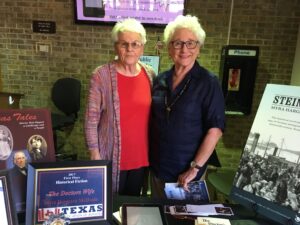In a plan to redeem prostitutes and “combat the social evil of fallen women” in 1894, the Rev. J. T. Upchurch and his wife Maggie Mae organized the Berachah Rescue Society in Waco. One newspaper account claims he was “driven away [from Waco] by angry fellow Methodist church members who opposed his missionary work with prostitutes.” Regardless of the reason, the Upchurches moved in 1903 to the Dallas slums to continue their “mission.”
Sometime in 1903 Mrs. Upchurch’s father donated twenty-seven acres in Arlington between Dallas and Fort Worth and the Upchurches opened the Berachah Industrial Home for homeless, often pregnant, girls from all over Texas and the surrounding states.
Although Upchurch held conservative theological views, his ideas for social reform were liberal for the time. His home, unlike others for unwed mothers, required that children remain with their natural parent and that the mothers learn to care for themselves and their children. He believed that there were no illegitimate children, only illegitimate parents.
Upchurch published The Purity Journal for financial contributors who were primarily Dallas-Fort Worth businessmen. In the journal articles Upchurch wrote of the evils of brothels, saloons, and social corruption. His stories about the slums and shelters included accounts of redemption and salvation. He also described the work being done at the home and detailed individual case histories. The residents worked in the home’s handkerchief factory, operated the press for the Purity Journal, and maintained the large gardens and orchards. Upchurch required all residents and staff to attend worship services on the premises and to refrain from using the phone on Sundays, eating pork, or consuming coffee, tea, or tobacco.
At the height of the operation in 1928, the home added an additional forty acres and expanded to at least ten buildings including a hospital/clinic, nursery, dormitory and dining room, handkerchief factory, school, auditorium, and barn. The home closed briefly in 1935 and Upchurch’s daughter and son-in-law Allie Mae and Reverend Frank Wiese reopened the facility as an orphanage that served until 1942.
Today the property is on the campus of the University of Texas at Arlington and the only physical reminder of the history of the site is the cemetery opened in 1904 that contains over eighty graves of unwed mothers, stillborn babies, children who died in measles epidemics, and employees and their children.

He certainly was ahead of his time in allowing the women to keep their children. Great story, Myra.
Thanks, I’m glad to be able to share the story.
I was glad to discover that piece of information. Thanks for reading.
you are wrong about one thing Myrah. There are now two physical reminders….. the grave site and your written word. I love this story. Thank you for shining a light on this wonderful man, his wife, church and his daughter. You make Texas so exciting for me.
I’m so glad you enjoy the Texas stories. I do too and I love sharing them with people like you who are interested.
Wonderful article. Thank you! James Tony Upchurch did NOT donate land in Arlington for the Berachah Home. He ” acquired” it. This is why the Berachah failed.
Thanks, Linda, for adding to this story.
My mother was born in the Berachah home in 1921.
Thanks so much for adding your personal connection. Makes the story come alive.